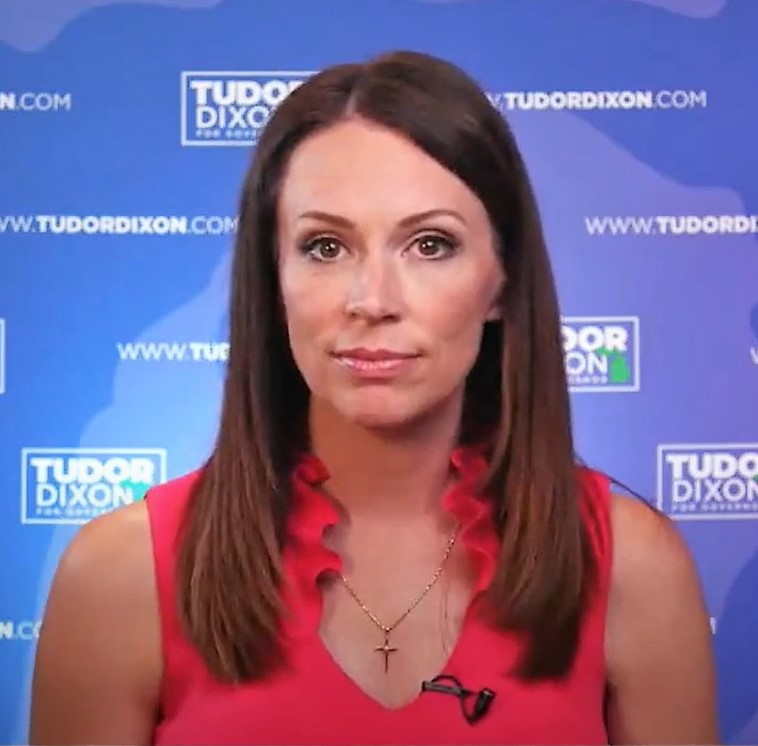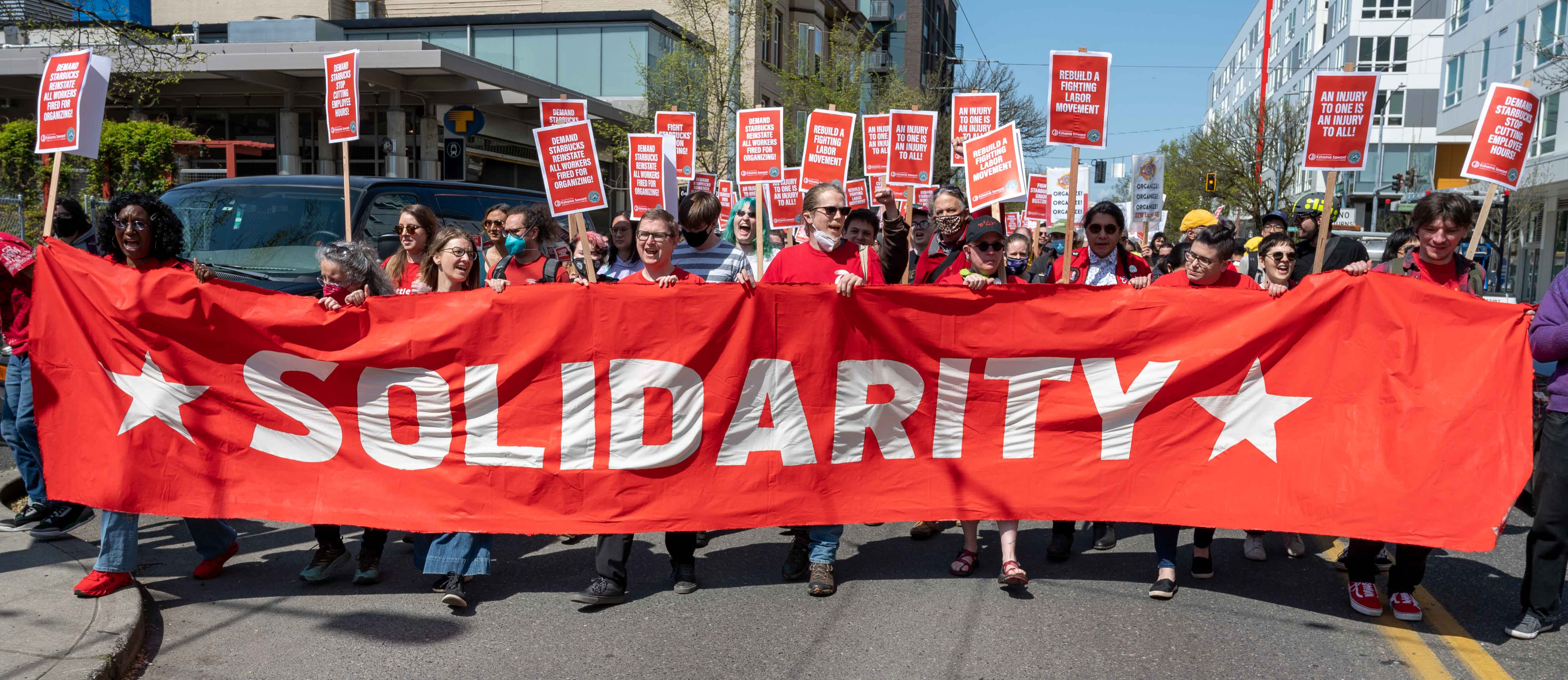Equitable power sharing benefits workers, businesses, and society.
Did you hear Tudor Dixon’s stunning reinterpretation of history in a video that surfaced last week? In 2020, Dixon, now the Republican nominee running for governor of Michigan, was an anchor for far-right news network “Real America’s Voice.” In a monologue, Dixon opined that Democrats want to “topple America” because they “lost the Civil War.” It gets worse – if you have the intestinal fortitude, you can listen here – but it’s also misleading. Not only did the party platforms flip in the 1960s (over race, no less), it’s not the Democrats who sent Confederate-flag waving “patriots” to the Capitol on January 6th to spearhead Trump’s attempt to remain in power over the country despite losing the election. But I digress, and we’ll come back to Dixon’s ruse later.
Pretending that the major political party ideologies have never shifted is popular among Republicans, but, as American historian Heather Cox Richardson writes, “rather than focusing on party names, it makes more sense to follow two opposed strands of thought, equality and hierarchy, as the constants.” These two vastly different ways of thinking underlie much of the political divide these days.
Authoritarians, for their part, perceive power as hierarchal, like a pyramid. A strong man (usually) at the top, with power over another tier of somewhat lesser people, who rule over a larger, even less powerful set, and then eventually the great unwashed. This is the way the feudal system, a lot of corporations, and other “org chart” institutions are organized. Know your place, who to obey, and if you’re lucky, you can work your way up and lord it over (I mean “manage”) the people below you. If you have lived very long in the modern world, you likely know this system pretty well.

Harder for authoritarians to understand, but more intuitive for many, is a system of greater equality. “Power from within” or “power together” is an important mindset to understand as we move into a future of relative economic scarcity. With the following examples, I hope to impress upon readers what such a world could look like, how it functions better for more people, and why it should eventually prevail.
If the modern hierarchal corporation is exemplary of the “power over” mindset, unionization efforts are the most effective way to counter authoritarian management with the shared power of equality. In this Jacobin interview, Daisy Pitkin, the veteran organizer now leading the effort to unionize Starbucks, talks about her early years facilitating the unionization of commercial laundry workers in a deeply red city and state with no union presence (Phoenix, AZ).
For Pitkin, workers finding collective power is the secret sauce that makes the whole thing succeed. Good unions, according to Pitkin, aren’t about simply reversing “power over.” “The kind of power that the boss has is not something we want anything to do with. We don’t want to traffic in that kind of power. It’s authoritarian power, and it’s not of us or for us,” she told Jacobin. Union power comes from solidarity. She cites the example of a group of female workers living with domestic abuse. They decided to create a phone tree (this was before the ubiquity of the internet), and one night, a woman put out the call: she was in danger. As the message spread, three of the other women showed up at her house, armed, to protect her. The union effort was struggling, but Pitkin realized that they’d already won the most important fight.
“We’ll get to bargain a contract someday with the boss, or we won’t, but we’re not going to let anyone fuck with us anymore,” Pitkin explained. The laundry workers had been hired specifically because they seemed vulnerable, unlikely to ever speak up for themselves. Once the union effort helped them find their collective strength, enough to spill over outside of work, corporate leaders were shocked – SHOCKED! – that the workers stood up. Power Together, on a long enough timeline, defeats Power Over.
Chris Newman is a small rancher, raising pasture, cattle and chickens on about 40 acres in Virginia. He realized that small commercial farmers have to fill a lot of roles that aren’t actually related to farming. Besides doing the work he actually loves, he must also do his farm’s marketing, pricing, packaging, regulatory compliance, tax accounting, bookkeeping, purchasing, inventory, customer service, hiring, insurance, and more. It’s a lot for any one person to handle, and ideally, he shouldn’t have to. All of that non-farming labor takes away from the headspace he could be devoting to better farming practices, innovation, and improving the land. “In short,” he writes, “we’ve done the most modern-American thing possible: bartered away our quality of life for the freedom to be miserable.”
For generations, Americans have idealized rugged individualists, but there’s a cost for deciding to go it alone. On one hand, you get to make all the decisions; on the other hand, you’re responsible for making all the decisions. By not teaming up, small farmers are overworked, duplicating efforts, losing money, and often, ending up unsustainably miserable.
Newman’s solution is to work together. What if all the small farmers in a given area joined forces and formed a co-op? They could order supplies in bulk, avoid duplicating non-farm labor like accounting, sell at volume to more customers, take advantage of reduced costs, and maybe ratchet that 80-hour week down to a more comfortable level. Additionally, by joining an existing co-op, new farmers wouldn’t face the daunting task of starting from scratch. Participants would make some decisions collectively, which means giving up a little autonomy and being accountable to the co-op to some degree, which runs counter to the ideal of rugged individuality, but perhaps relinquishing some of that “power over” is worth it. Especially if it means having more time to do what you love.
The final example comes out of the war in Ukraine. While America’s authoritarians are praising the perceived macho strength of Russia’s super-manly, top-down military, Putin’s three day “special military operation” is stretching into its ninth grueling month and a Russian victory is by no means certain. What does smaller Ukraine have that “the second best army in the world” doesn’t?
Spirit, yes, and a whole heaping helping of it, but there’s more to it than just better morale. Both the Russian and Ukrainian armed forces are descended from the Soviet model, but after Russia yanked Crimea away in 2014, their paths have diverged greatly. Russia kept the top-down, authoritarian model where the boots on the ground merely follow orders and the highest brass exercises firm-handed power over them, usually from a safe distance. Ukraine, however, revamped and retrained. They have better weapons from the West, training in NATO countries, and have made fewer catastrophic blunders than their opponents, but they’ve also leveled-up their flexibility by entrusting lower-level fighters with decision-making.
By moving day-to-day decisions from the top to the bottom, Ukraine’s army works more like a nimble startup. Units are empowered to take opportunities that might be missed if they had to call Kyiv and get official permission every time. Brains, inclusivity and greater equality of agency are far more of a challenge for brawn and “power over” authority than almost anybody expected. Especially Vlad Putin.
As we’ve seen, a more equitable distribution of power can change the lives of unionized workers, take an immense amount of labor and stress off of the boss, and run circles around a hidebound, entrenched authoritarian military.
All of which brings us back to Tudor Dixon and her deceptive take on history. Sure, her transparent ploy to mislead the Republican base lacks honor, but there’s an even deeper admission here that is worth highlighting. By trying to claim the false halo of being the side that opposed slavery and fought for equality, today’s political authoritarians are low-key admitting that “power over” is a losing strategy in the long run. After all, why else would her side still be trying to topple the country as they keep fighting the same old, tired Civil War?
Related: Building Dual Power For Local Resilience


Join the conversation!